Thomas E. Ricks's Blog, page 82
October 24, 2013
Churchill as a Poet

I was re-reading Churchill this summer a lot. For
the first time, I began thinking of some of his great passages as arias or
poems. For example, try this, with the words the same, but in the typography of a
poem:
We shall fight in France,
we shall fight on the seas and
oceans,
we shall fight with growing
confidence
and growing strength in the air.
We shall defend our island,
whatever the cost may be.
We shall fight on the beaches,
we shall fight on the landing
grounds,
we shall fight in the fields and in
the streets,
we shall fight in the hills.
We shall never surrender.
October 23, 2013
Combat culture: How civil military perspectives have changed since 9/11 -- and why Trotsky was wrong about war
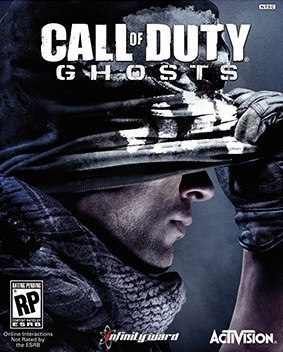
By Jim Gourley
Best Defense military
culture correspondent
For those that
missed it, September kicked off the marketing campaign for the upcoming
video game Call of Duty: Ghosts. It
is the 10th installment of the popular game series, which began on the European
battlefields of WWII and now proposes a dystopian future in which Americans
fight for survival on their own soil. Tom asked me if I wanted to write about
it, but I had trouble deciding what more there was to say that hasn't already
been covered. At any rate, I was somewhat more interested in recent commentary
on the streak of militarism in the Crossfit craze. That's when it occurred to
me that there were striking parallels in these two apparently diametric
recreational pursuits. Whether couch potato or fitness fanatic, there are
indications that there is an existential fascination among Americans with all
things military. Why?
The intuitive
answers would be an increased awareness of the military due to heightened media
attention and an increase in the number of military members throughout the
country. Intuition fails us in this case, however. In fact, according to the
best estimates by the U.S. Census Bureau and Department of Veterans Affairs,
the total number of American veterans has dropped from 26.4 million in 2000 to
22.6 in 2011. Despite the increases in the overall size of the military in the
last decade and the "surges" in Afghanistan and Iraq, the number of
combat veterans of America's current wars only exceeded the remaining
population of WWII veterans in 2011, crossing the 1.3 million mark. Furthermore,
when one accounts for the total increase in U.S. population over the last decade,
veteran representation in America has gone down from 12 to 7 percent. The
increased presence of the military in the American consciousness is not a
product of any increased physical presence.
Nor is it likely
that it comes as a consequence of news reporting. According to the Pew Research
Center, coverage of Iraq as a percentage of all reporting dropped precipitously
between 2007 and 2009. Except for a minor spike to 9.5 percent of coverage in
late 2009, Afghanistan has consistently languished in news obscurity. Though
not a perfect metric for comparison, Call
of Duty has been a more popular search term on Google than
"Iraq," "Afghanistan," "Troops," and
"Veterans" since late 2007. Perhaps even more telling is another
comparison: On a comparative scale, Call
of Duty receives an interest score of 13, while "war" scores 59.
"Peace" only receives a score of 10. Even when news coverage
overwhelmingly shifted to the economic crisis, search terms such as
"economy" and "Wall Street" failed to be more popular than
"war." Only the 2004 and 2012 presidential elections manage to be
more popular, and only in the month of November. Against pop-culture related
items, "Gangnam Style" and "Miley Cyrus" just barely
managed to beat "war" for a month apiece. Interestingly, Cyrus seems
to have benefitted from the fact that the shenanigans that generated her hype
occurred in August. Strangely, July and August consistently mark the yearly
low-point of popularity for "war" in Google searches.
Though it is
difficult to say if all this leads to any conclusions, it indicates that Leon
Trotsky was grossly incorrect -- we are
more interested in war than it is in us. So interested, in fact, that we
are immune to a reduction of our exposure to it. Each Call of Duty game has broken sales records set by its predecessor,
and for the game industry at large. A similar marketing campaign based on the
usage of Crossfit by elite military forces has been a driving force behind its
surge in popularity. From bicycles to sports cars, brands around the world have increasingly tailored products and ad
campaigns to appeal to our lust for "military grade" products since
9/11. Whether the global popularization of war began before the global war on
terror may be a chicken-and-egg proposition. However, its existential
progression leads to new questions. How will this blending of pop culture and
militarism affect our society's relationship with its armed forces, and with the
principles of armed conflict in general?
Jim Gourley is a member
of Best Defense's all-star team.
The Royal Navy now has 15 times as many commanders as it has warships
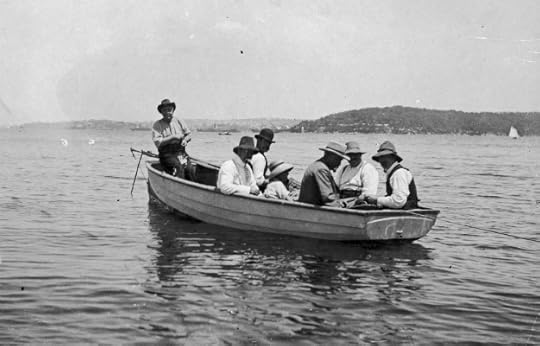
So reports a British MP. The senior service now
has 40 admirals, 260 captains -- but just 19 ships, he alleges. But checking
around the web, I think what the MP meant was that Britannia has just 19 major
surface combatants (not counting minesweepers and such). It also has about a
dozen submarines -- but then, the British have always undervalued subs, haven't
they?
At any rate, the MP's point is a good
one. It appears that the RN could man an entire warship with surplus skippers.
On the other hand, here's one blog's analysis that kind of knocks down the report.
The blogger needs an editor -- he leads with ancillary observations, and only
after much throat-clearing gets to his argument. But worth wading through the
top to get to the core argument.
The newspaper report adds that the
British Army has more generals (260) than it has main battle tanks (200). I
wonder if it has more artillery officers than artillery pieces. Anyone know?
Speaking of Marine Corps trouble, 27 former JAGs ask Congress to investigate the leadership's handling of Maj. Weirick
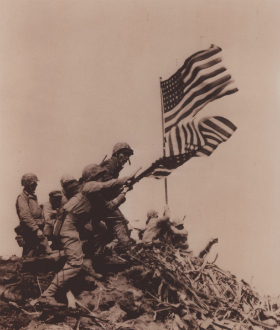
I can't remember anything like that ever happening. I was sent a copy of the letter, signed by
27 former Marine and Navy JAGs, and, I am told, supported by many others on
active duty. Here's the item I ran on Weirick the other day.
What is with the Marine Corps these days?
October 22, 2013
'Counterinsurgency in Crisis': An objective assessment of the British experiences in Helmand and Basra
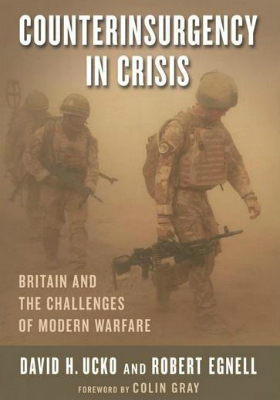
By Emile Simpson
Best Defense
office of counterinsurgency doctrine
Counterinsurgency
in Crisis concerns
specifically the British experience of conflict over the last 10 years. The
timing of this book matters, given that the British combat mission in
Afghanistan is now in its twilight, at least on current plans: By publishing in
2013, the authors -- the estimable David H. Ucko and Robert Egnell -- free themselves from the temptations of a
polemical approach to influence events on the ground; they rather deploy a
dispassionate, analytical style that will serve to influence the debate over
the longer term, as this admirable book deserves to do.
The central
conceptual argument is that counterinsurgency in the abstract offers guidance
and principles based on past experience that may be helpful in the design and
execution of an effective campaign plan, but that it is an operational
approach, not a strategy: "the focus on military operations can easily obscure
the fact that they require a political strategy to be meaningful".
This argument is
presented in four thematic strands: how the British understood and applied
their own past experience of counterinsurgency, two main case studies in Basra
and Helmand, and an extensive analysis of the British Army's internal institutional
adaption over this period.
In terms of the
British understanding of their own doctrine, the authors argue that the
examples of Malaya and Northern Ireland in particular were overly privileged,
selectively understood, and superficially applied. This resulted in operational
approaches driven by principles that did not necessarily translate across to
substantially different political and military contexts.
For example, the
promotion of a legitimate government makes sense in the abstract as a generic
counterinsurgency principle, but "who were the established authorities in Basra
in 2003 or 2006, and who were the established authorities in Helmand of 2006 or
2009?"
The authors propose
that both historical case studies and contemporary conflicts need to be
understood on their own terms, not regurgitated as templates. Of course there
would be few writers on COIN who would disagree with that. The real power of
this argument concerns how, given the experience of Basra and Helmand, the
British Army's own historical experience of counterinsurgency operations did
not make the impact it should have done.
The reasons
presented for this are complicated, but this important chapter goes a long way
to explain the difference between assumed corporate knowledge, which the
British Army did have in places, both in terms of people in and out of uniform,
and actual operational practice. For example, the book mentions the successful
British Dhofar campaign in the 1960s and ‘70s as one example of a lacuna in the
British Army's understanding of its own history: It was only "remembered" at an
institutional level long after Basra and Helmand had started.
The Basra chapter
is calm, objective, and ruthless. There is no escaping that the British made a
secret deal with Shiite militias in Basra in 2007 that, however spun, remains a
deep humiliation. What about Charge of the Knights in 2008 that re-took the city?
Ucko and Egnell are fair: While recognising that this was "salvation" for the
British, who played a relatively minor part, so too is there acknowledgement
that the British Army in Basra made important reforms that enabled aspects of
the operation, such as an evolution in the partnering and mentorship structures
with the Iraqi Army.
However, these
eleventh hour successes are analysed as being in spite of London, which does
not speak to a coherent strategic process: "Operation Charge of the Knights
unfolded so quickly and so unexpectedly that there was less chance for the
British Government and MoD back in London to interfere". Indeed, a strength of
the book is the analysis of the conflicting demands that British field armies
in Basra, and to a lesser extent in Helmand, have experienced in reporting both
to London and in-theatre chains of command.
The authors
acknowledge the basic resource and political constraints that put in a kinder
context the operational problems of the British field forces on the ground in
Basra. But London does not come off well. The presentation of Basra as a strategic
success by senior political and military apologists is forensically dismantled:
"if this strategy was ever sincere, it failed".
Turning to the
Helmand chapter, I would take a different view of the dynamics of the conflict,
specifically the claim that Helmand was a hornet's nest of Taliban before 2006.
In my view, there was not a specifically Taliban insurgency in Helmand before
the 2006 British deployment, and the insurgency that emerged initially was of a
local and fragmented nature, not a coherent Taliban enemy. To be fair to the
authors on this point, my view is currently in the minority in terms of the
wider debate. Leaving that to one side, I agree with the chapter's main
assertion that despite operational progress in Helmand later on, the early
campaign lacked clear focus, and replicated the problems of Basra at the
strategic level.
The analysis by Ucko
and Egnell of the problems of the Helmand campaign is convincing, and points
out inter alia that the substantially
different approaches taken by successive brigade rotations did not make sense
in terms of an overall campaign, which raises real question-marks over the
coherence of the British strategic process (although this was by no means a
uniquely British problem).
From a personal
point of view, having served in Helmand, there were many British officers who
were familiar with COIN in the early phase, but we lacked the manpower before
the surge in 2009 to hold cleared ground, the intelligence resources to
understand the political complexity, and tight enough operational aims. Since
2009, I think the British Army has performed effectively in Helmand.
I also think that
from an internal, institutional perspective, the single biggest practical
difference to the British Afghan campaign, beyond resources and political
goals, was the personality and drive of General Stanley McChrystal in 2008 and
2009. The fact that it ultimately took a U.S. general to tone down what was
plainly an overly kinetic approach before 2009, which was antagonising too many
people in Helmand, says something about British claims to be the guardians of
the minimum force tradition of COIN.
The book's conclusion does not advance either the retention or
jettisoning of counterinsurgency, as other works in this area have done. Rather,
a nuanced position is established: There may well be operations possibly
involving British forces in the near future that require an understanding of
counterinsurgency, but COIN should be properly understood as a pool of
operational practice that needs to be applied to the particular context, and
accompanied by a political strategy, which COIN is not in itself.
More specifically
for a British audience, this book may trigger a more public discussion of what
happened to the British in Basra. That debate has been on hold due to Helmand,
and will be coloured by the extent to which Helmand is received as an exorcism
for the British Army's experience of Basra.
Given that it is
naturally hard for British soldiers, many of whom have lost friends in Basra,
to look at the subject objectively, the authors ultimately do the British Army
a service by prefiguring a moment in the near future, when most of its troops
are off the ground, when the British Army and its masters in the government and
the electorate may come to take a dispassionate, and probably painful look, at
this most emotively charged of subjects.
Emile Simpson served in the British Army as an infantry officer in the Gurkhas from 2006 to 2012. He deployed to southern Afghanistan three
times and is the author of War From the Ground Up: Twenty-First Century
Combat as Politics (Columbia,
2012).
A drone reading list

When I saw this, it struck me as a natural -- why hadn't I
seen such a list before?
BTW, among the
participants in the Drone University endeavor is the New America Foundation, to
which I am moving in nine days.
Canada gazes northward as ocean levels look likely to rise a foot or two in a century

The Canadian government, looking northward, is expressing
less concern about Putin and more about "development for people of the North,"
"responsible resource development," "safe Arctic shipping," and "sustainable circumpolar
communities." So saith Iain Hunter in the Times-Colonist.
BTW, can you imagine an American newspaper having a name like that? Not
likely. ‘Mericans don't like "colonists." We like our newspapers as tribunes,
standards, heralds, dispatchers, reporters, and the like. What's more, the
colonialist Canadian newspaper was founded by a guy whose parents were Tory
refugees from the United States. He changed his name to Amor de Cosmos. It would have
been great if he could have hired World B. Free to be his sports
editor, but the timing didn't work. Cosmos also was at one point the premier of
British Columbia. He was later declared insane.
More Canadian news here.
October 21, 2013
My estimate of Obama's three rules: Be cool, let sleeping torture lie, and don't challenge the national security crowd

In a recent conversation with some smart guys, one suggested that Obama
was naïve about national security and so got intimidated by its establishment.
I think not.
Rather, my
estimate on Obama is that he decided on three things during the campaign, and
has stuck with them:
A black candidate for
national office cannot afford to be seen as "angry."
There would be no
investigations of Bush administration actions such as the
use of torture by intelligence operatives
and subsequently misleading Congress about that.
More generally, there is
no upside for a Democrat today to challenge the national security
establishment.
I wasn't
saying he was right to do so -- that's another question. I was just trying to
figure out what he was doing. Even so, I got some pushback from the smart
friends, including:
Actually, not being angry
comes natural to him. He is a cool, stubborn, and solitary man. He doesn't get
mad, he gets remote.
He appears to act
sometimes on national security questions without regard for consequences, as in
his love affair with drone killings.
No, it is naïve to hire
people inexperienced in national security for national security slots, as he
did. This amounted to a challenge on his part -- effectively, a statement that
he would place politics above policy, even overseas.
What
think youse? (And please, don't make this a Bush slugfest. I think we all know
well where everyone comes down on all that.)
Commander of Quantico's Marine Security Battalion discharged over a personal weapon discharge in his office?

Word on the jarhead
street is that is what is meant by the phrase "following an incident
involving a personal weapon"
in this article. Said colonel also faces some
UCMJ charges, the article says.
More messy Marine
stuff here. It seems to me that the Corps
is going through some hard times right now -- it reminds me a bit of the era of
the Beirut barracks bombing and Clayton Lonetree. Right now I am hearing the
most grumbling about the current commandant that I can remember since then.
(HT to YKW)
What would Col. Kurtz's obit look like?
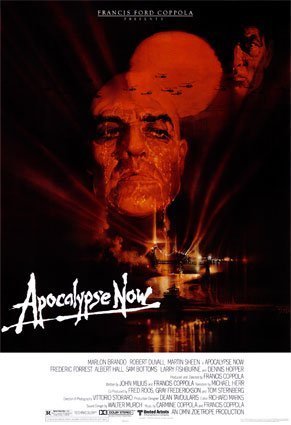
I imagine something
like this. Didn't you know he'd be a
Unitarian?
There is more back story here than I can possibly cover in one item. Kreigsakadamie,
others, you wanna pitch in here?
Thomas E. Ricks's Blog
- Thomas E. Ricks's profile
- 437 followers



